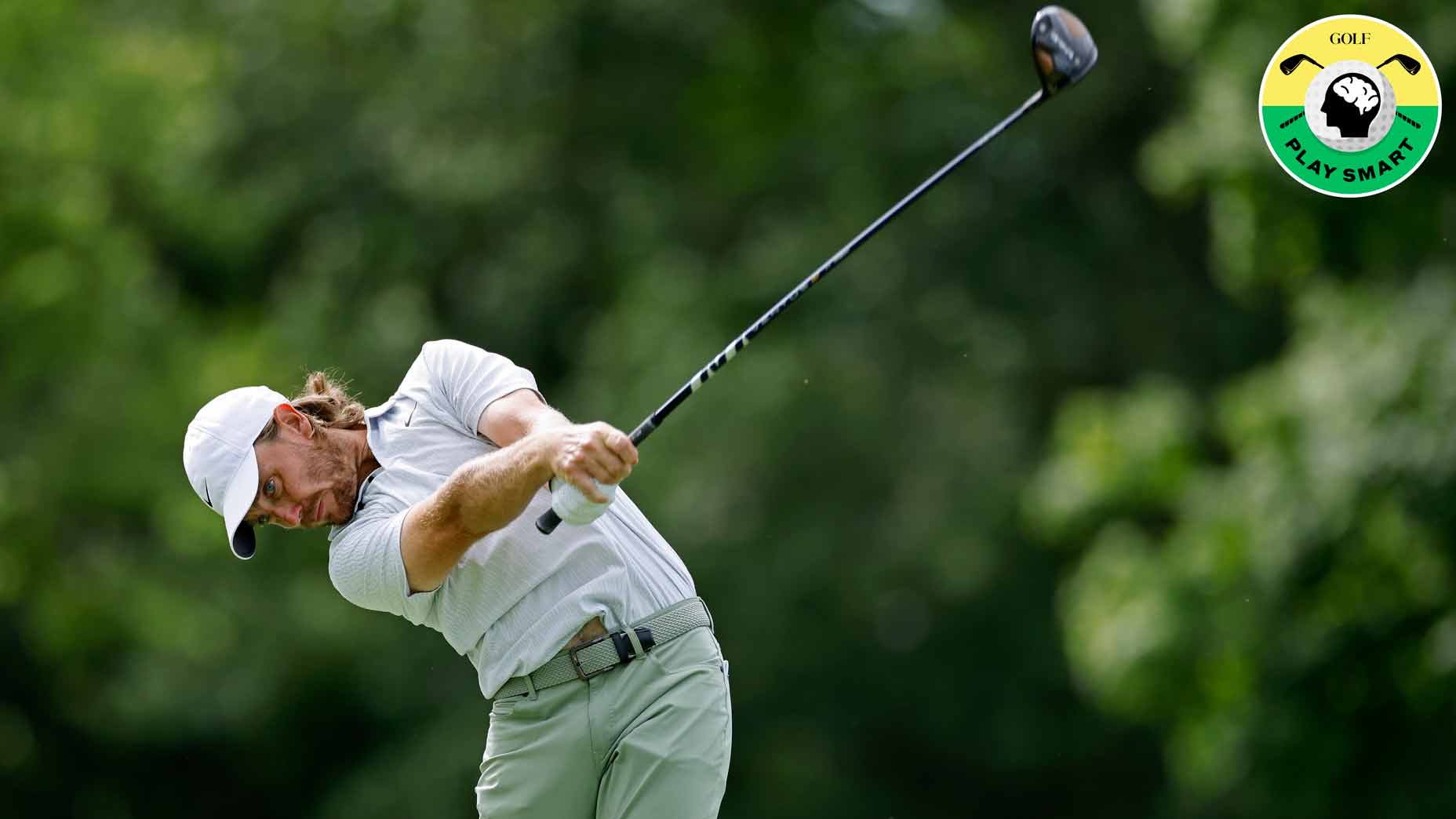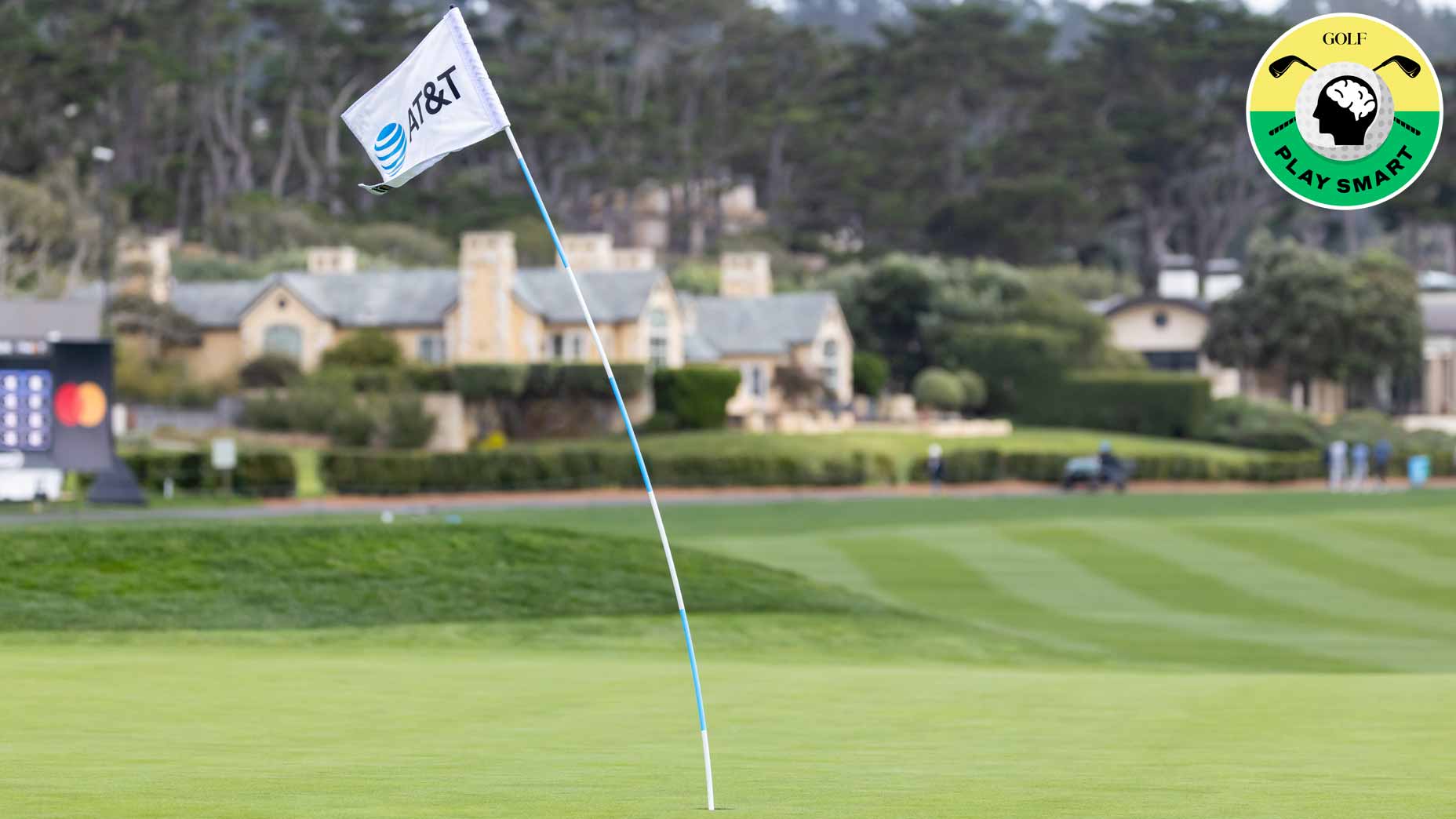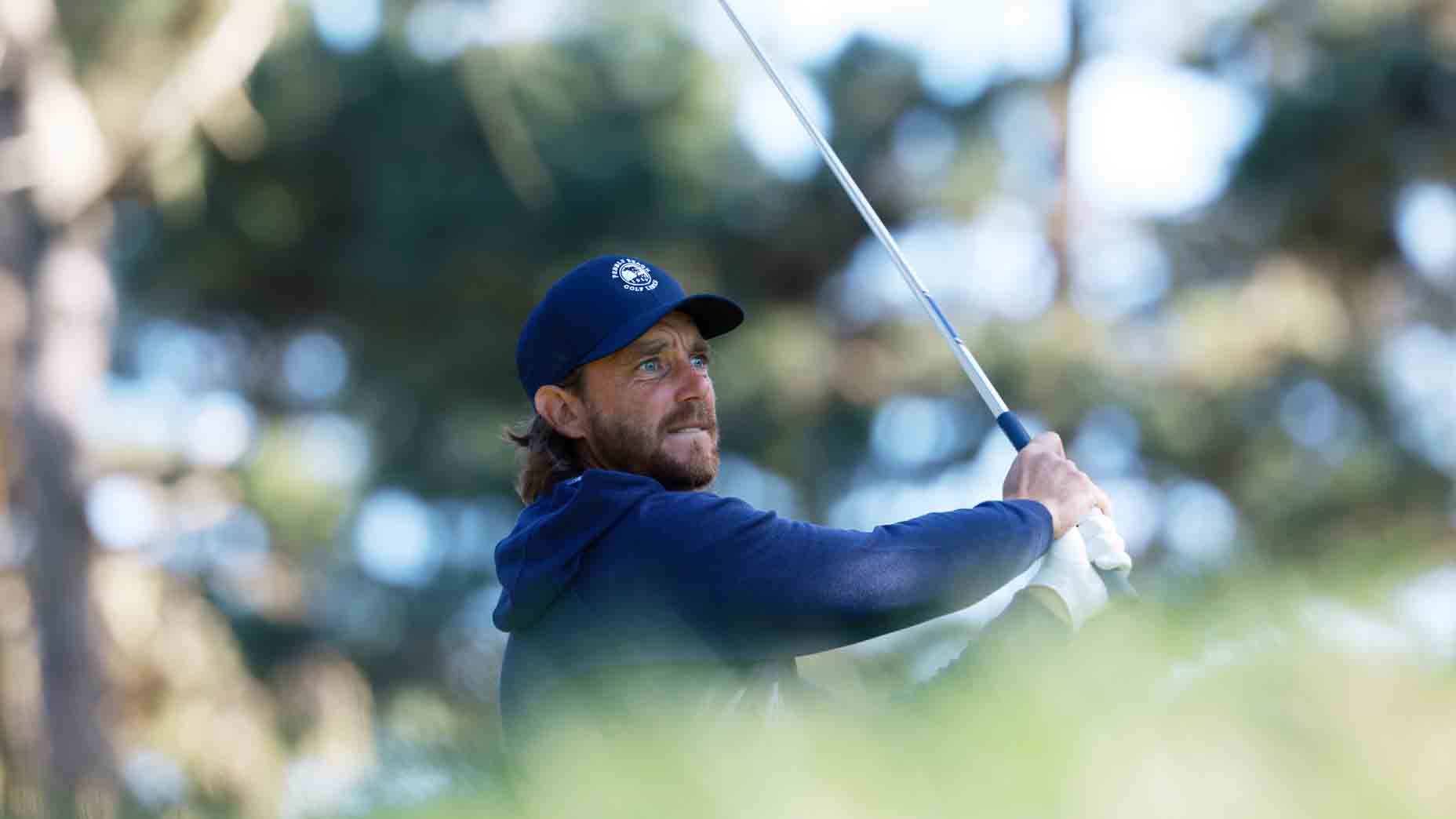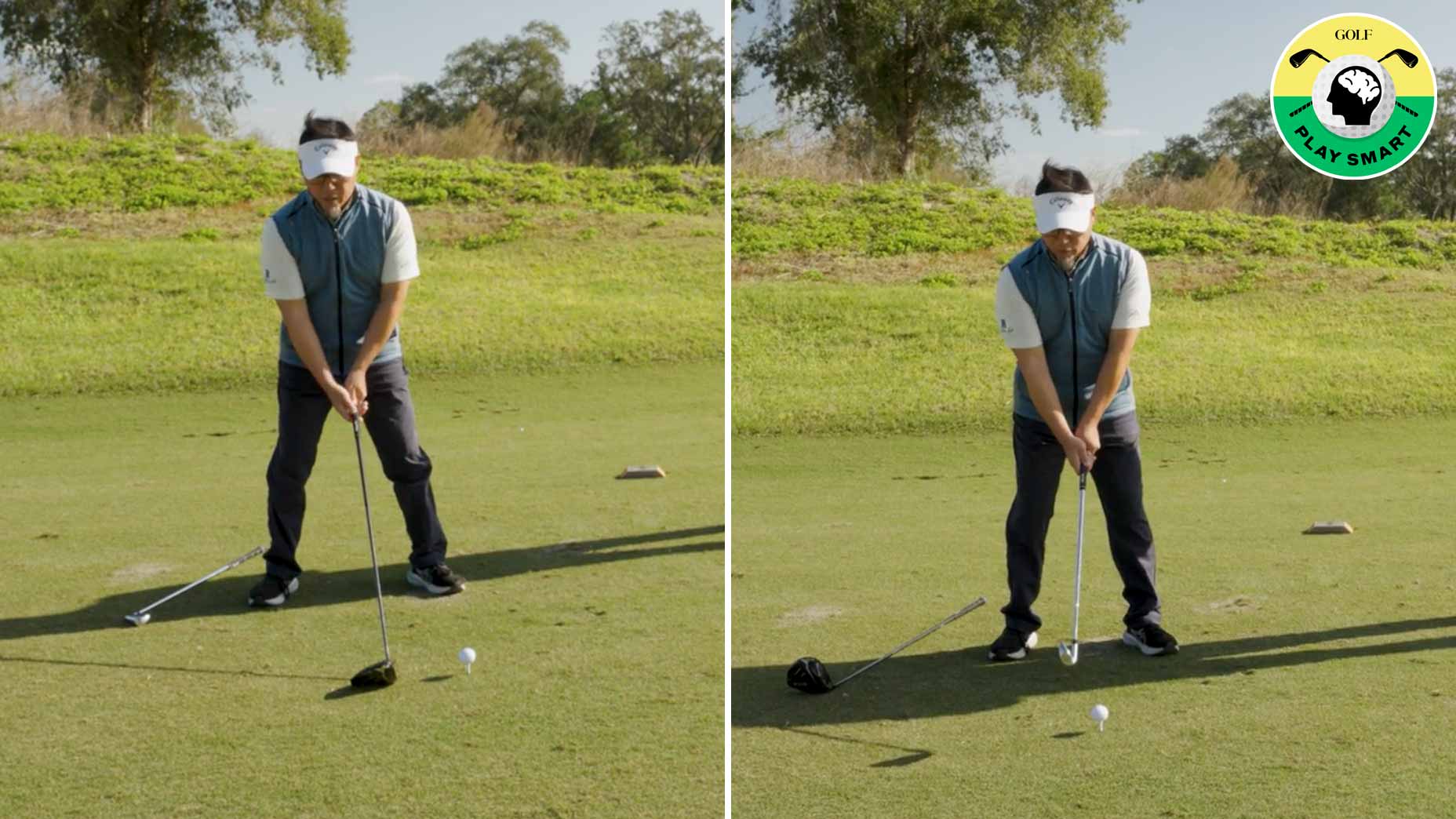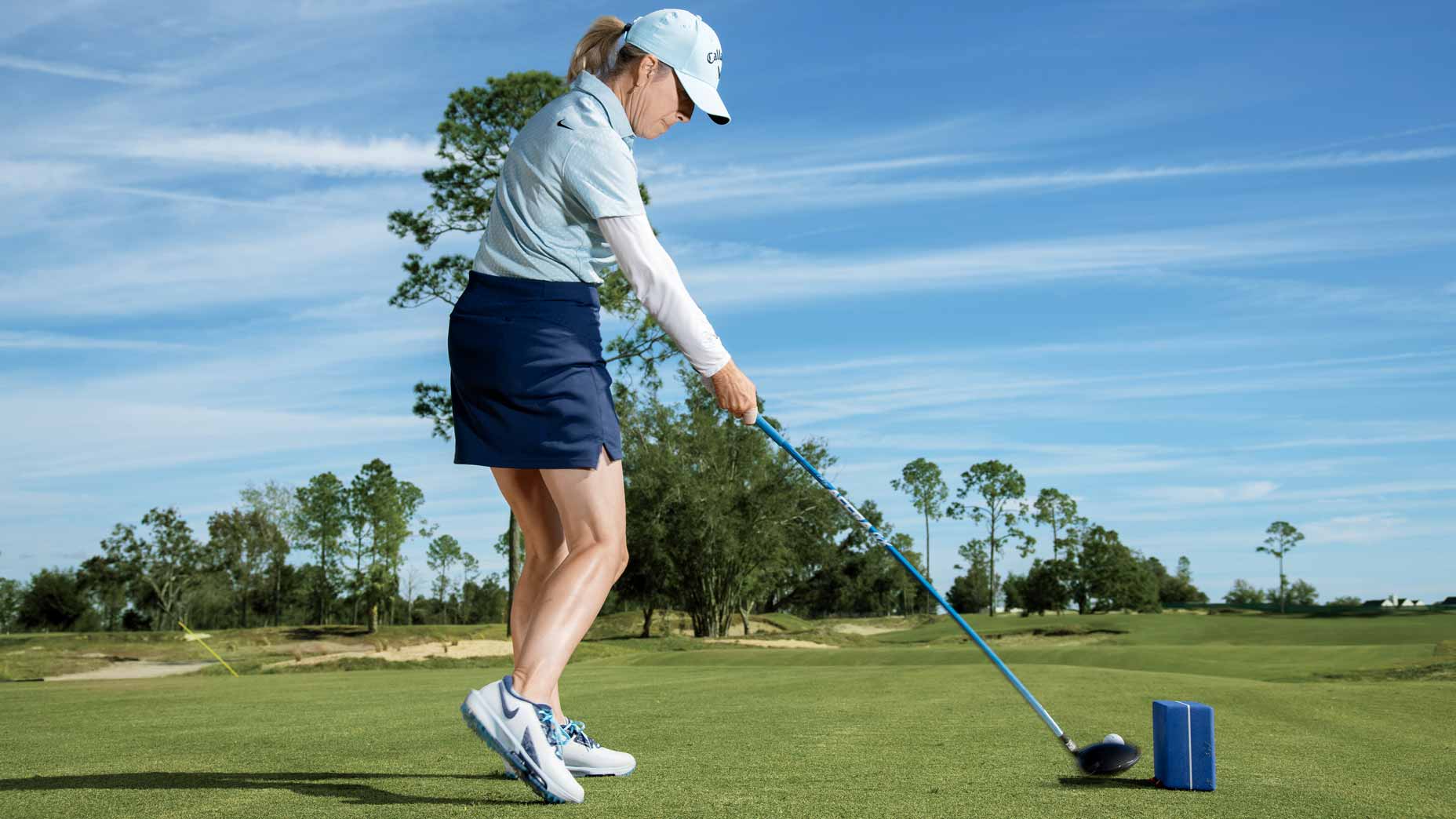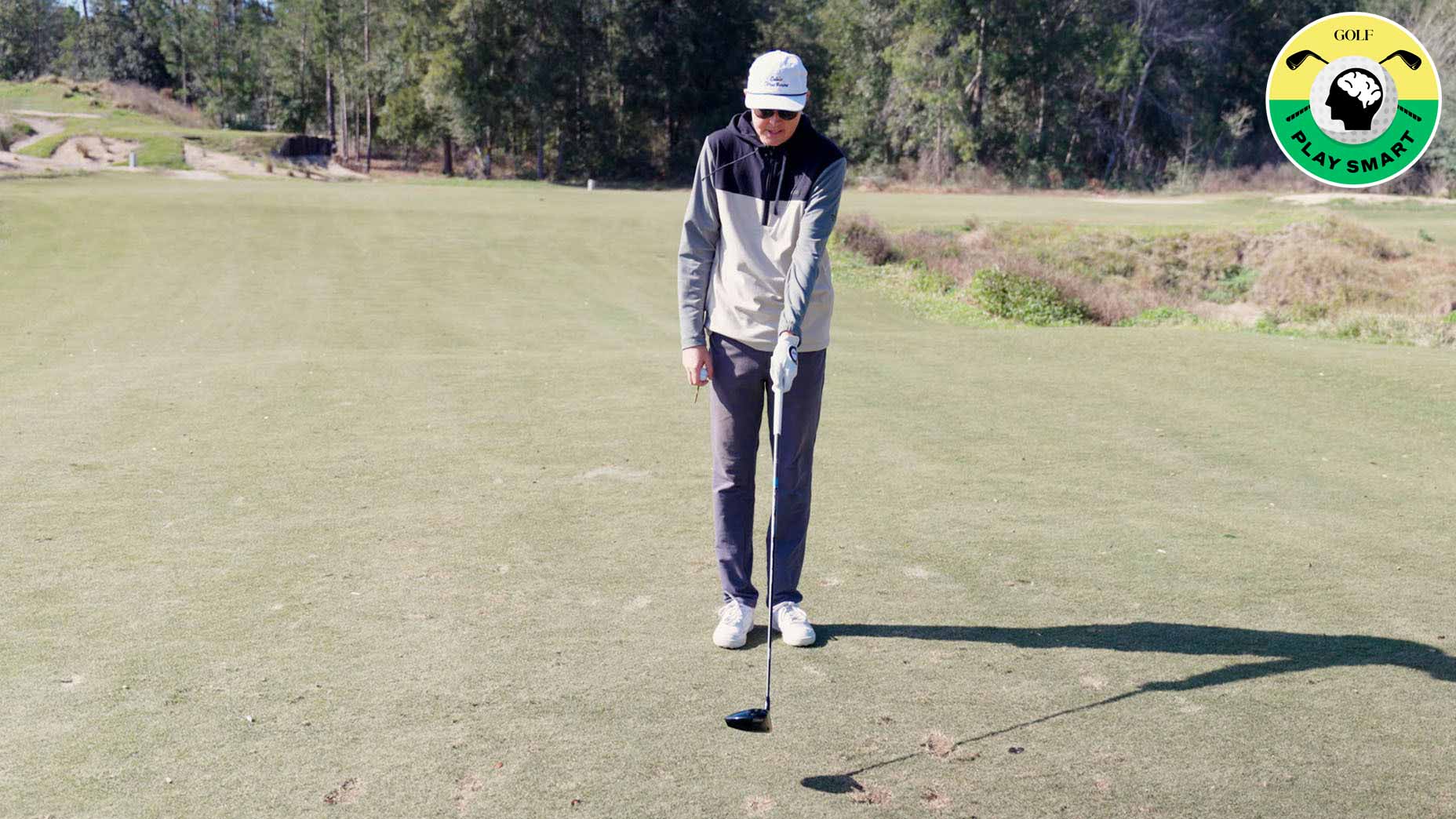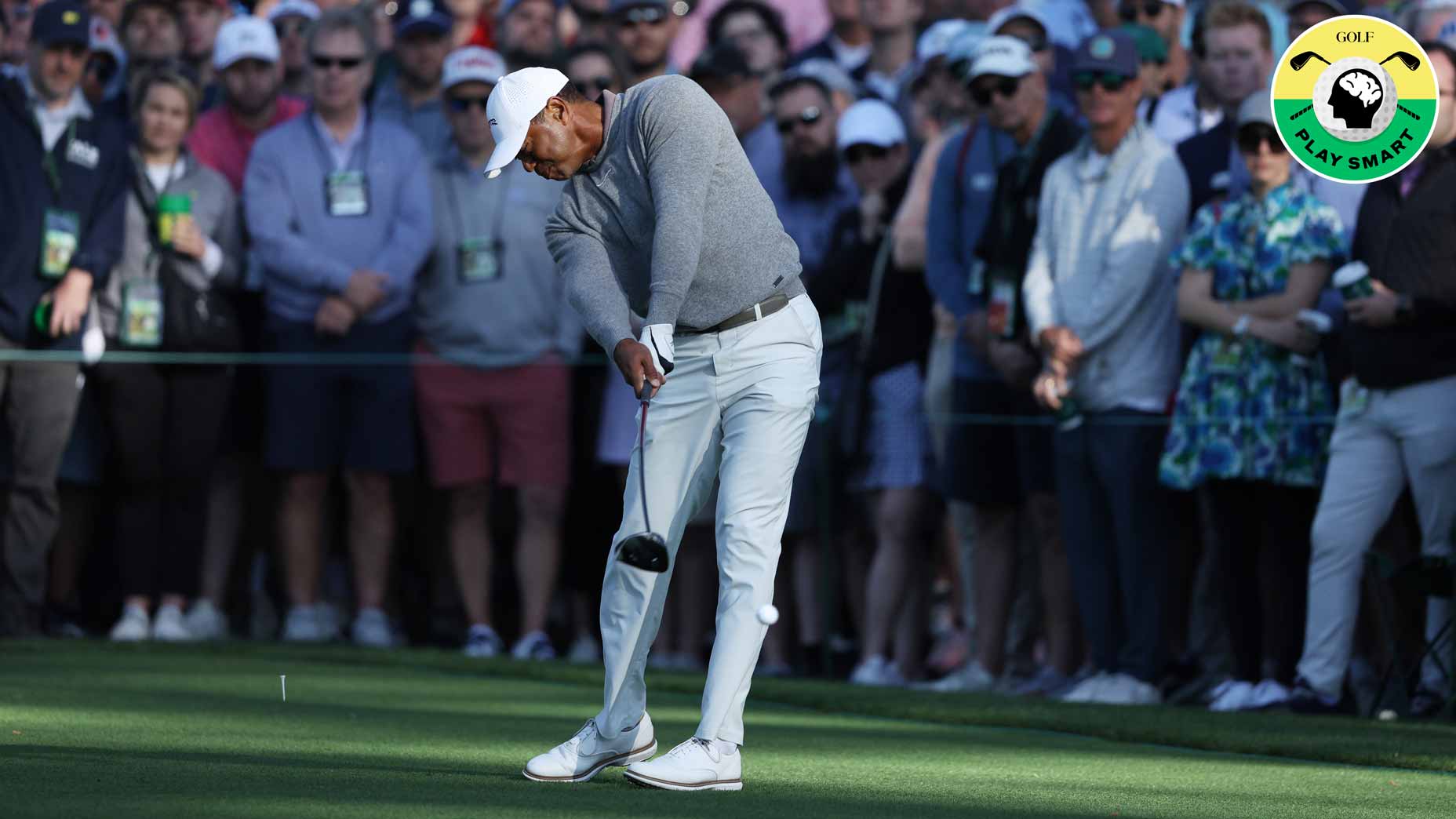Welcome to Play Smart, a regular GOLF.com game-improvement column that will help you play smarter, better golf.
Tommy Fleetwood had one heck of a week at the Olympics. Back at Le Golf National — where he became a Ryder Cup legend in 2018 — Fleetwood took home the silver medal as he finished just a shot behind world No. 1 Scottie Scheffler.
Being a major player on the international stage is nothing new for Fleetwood. Since he turned pro in 2010, he’s won 10 times worldwide, appeared on three Ryder Cup teams and finishing inside the top 10 in eight majors.
A huge reason for his success has been his elite ball striking, particularly with the driver. Over the last seven seasons, he’s ranked inside the top 25 in SG: Off the tee four times, including a career-best seventh in 2017. Simply put, Tommy-lad is a great person to emulate when learning how to attack a course off the tee.
Solid drill from Tommy Fleetwood for practicing hitting up on the driver.@RickShielsPGA pic.twitter.com/eV25uH7YGF
— Tour Pro 🏌️♂️ (@OfficialTourPro) July 24, 2024
Fleetwood’s driving drill
One of the biggest ailments plaguing amateurs is hitting slices off the tee. Not only do these banana-balls sail way off line, but they’re also devoid of any power.
Hitting a slice comes from a combination of swing flaws, with one of them being a negative attack angle when hitting the ball. To fix this flaw, it’s important you learn how to hit up on the ball.
“One of the things I like to use is a tee in the ground,” Fleetwood says. “And this is going to create something for you to miss.”
Put the tee in the ground a couple clubhead lengths in front of the ball. Then, when you make a swing, try to avoid the tee with your clubhead after making impact with the ball.
“If I was going to hit down on this, obviously I would hit the ball, [but] the driver would hit the tee,” he says. “That would result in me hitting down.”
If you can teach yourself to hit the ball and then miss the tee, your attack angle will be positive and you’ll be swinging up on the driver.
“Clearly I’m going to have to sweet up,” Fleetwood says. “Driver is going to come in higher than the tee and that’s going to create a nice sweeping motion which will hopefully hit the ball higher with a straighter flight, and you’re going to start hitting the ball longer as well.”
